My Child May Go to College out of New York State – Are the Regents Exams Still Important?
- Details
- Written by: Michael Birnbaum
- Hits: 5662

Each year in New York, high school students are required to take the Regents, a set of standardized examinations in the core subjects, to graduate. However, many students decide to attend college out of state, so what does that mean for New York-mandated tests? As the Director of Regents Review, a teacher-owned-and-operated Regents prep company, Michael Birnbaum would like to share why the tests are important, regardless of where a student decides to attend college. He recently wrote the following article: My Child May Go to College out of New York State – Are the Regents Exams Still Important? which he shares below:
In New York State, the Regents exams are comprehensive subject exams that students are required to take at the end of each year of high school. One reason for this is to ensure that every school in New York is teaching the same level of material. This is one of the reasons New York schools score so well on national high school rankings and why such a large number of New York high school graduates are college-ready upon graduation.
Colleges within New York State are familiar with Regents exams, but people often wonder whether the scores on Regents exams matter if their children are planning to attend an out-of-state college. Simply, the answer is that scores on the Regents exams still matter for many reasons.
First, although many out-of-state colleges are not as familiar with Regents exams as in-state colleges, many are familiar with them and others have become more familiar with them in recent years. With the amount of New York students who apply to colleges across the country, it is no wonder that many of these universities have done their homework and are now understanding what these exams are all about.
Next, at many high schools throughout New York, the grade on a Regents exam is factored into the student’s final grade in the course. The impact that the score will have on a final grade varies from district to district, and it is best to ask your child’s guidance counselor about the policies in your child’s particular school.
Finally, the scores received on these exams almost always appear on the child’s high school transcript. Therefore, even if a college is unfamiliar with the exam itself, a low grade on a transcript may send a flag to an admissions counselor at any college. Likewise, a strong score on a transcript will always reflect nicely on the student.
In sum, regardless of where your child is thinking about attending college, his or her score on the Regents exam remains crucial.
If your child is looking for a prep course for upcoming Regents exams, Regents Review has been helping students prepare for New York State Regents examinations for over 40 years. Prep courses are taught both in-person (at Purchase College) and online by New York State licensed teachers. Find out more information at RegentsReview.com or by calling 877-339-5970.
*This content is sponsored by the Regents Review*
Letter to the Editor: PTC Supports the School Budget and the Bond
- Details
- Written by: Joanne Wallenstein
- Hits: 1376
 Dear Editor,
Dear Editor,
As the 2023-2024 budget and auditorium bond issuance vote approaches on May 16th, the Parent Teacher Council (PTC) Executive Committee, PTC Budget Study Chairs and all seven PTA Executive Committees would like to reiterate our support and encourage all eligible community members to VOTE YES on the budget and the bond issuance.
In November 2022, the PTC Executive Committee and Budget Study Chairs identified four priority budget categories: delivery of educational services; safety and security, including a transportation study; upgraded facilities; and sustainability. The proposed budget addresses all four of these categories in a fiscally responsible manner.
Additionally, earlier this year, the high school administration presented a detailed overview of the condition of the high school auditorium and the need for a long overdue renovation. All roads in this school community lead to the high school. All Scarsdale students and the broader community will reap the benefits of this renovation. We support the proposal to fund this renovation via bond issuance.
The PTC Executive Committee and Budget Study Chairs encourage the community to VOTE YES on both the Budget and the Auditorium Bond on May 16th from 7:00am - 9:00pm at Scarsdale Middle School.
Thank you,
Lauren Grossberg, PTC President
Leah Dembitzer, PTC President Elect
Meredith Kent, PTC Secretary
Rokaya Hassaballa, PTC Treasurer
Vanessa C. Stoffels, SHS President
Deborah Lichtenstein, SMS President
Andrea Vallenilla and Alicia Bowman, Edgewood PTA Co-Presidents
Berit Berger and Michelle Schwartz, Fox Meadow PTA Co-Presidents
Rachel Krisbergh, Greenacres PTA President
Samantha April, Heathcote PTA President
Dana Hirsch, Quaker Ridge PTA President
Mayra Kirkendall-Rodríguez, PTC Budget Study Co-chair
Chris Bach, PTC Budget Study Co-chair
40 Cubic Yards of Organic Compost Distributed to Hundreds of Residents on Compost Giveback Day
- Details
- Hits: 2053
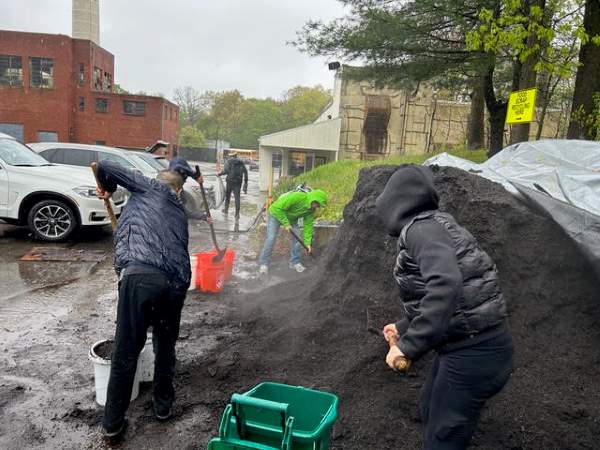
Despite torrential rain on Saturday, April 29, 2023, Michelle Sterling, a co-chair of the Scarsdale Conservation Advisory Council (CAC), reports that Scarsdale’s annual Compost Giveback Day was a huge success. Hundreds of Scarsdale residents were thrilled to receive high-quality food scrap compost for their gardens and flower beds. This compost was the product of the Village’s successful residential Food Scrap Recycling program, which has diverted over 2.500,000 pounds of food scraps from the solid waste stream since the beginning of the program in January 2017.
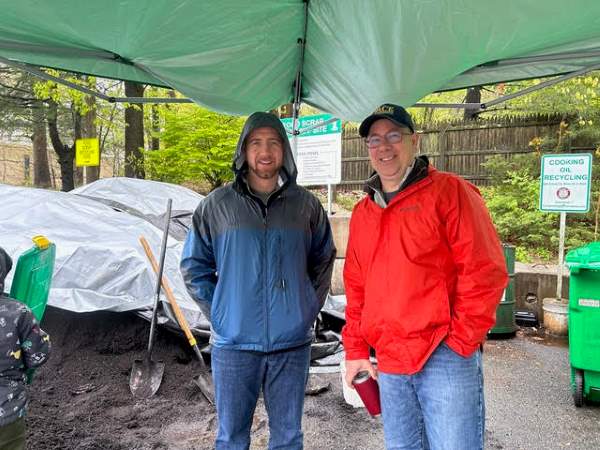
40 cubic yards of organic compost were distributed to a steady stream of eager residents throughout the day. Volunteers were on hand with educational materials and starter kits to encourage more residents to compost their food scraps. According to the University of Michigan School of Public Health, organic composting:
- Significantly reduces the amount of trash in landfills, cutting the costs and carbon emissions it takes to haul and process food scraps.
- Enriches the soil with nutrients, reducing the need for synthetic fertilizers and pesticides.
- Increases soil’s ability to retain moisture, helping to prevent erosion by reducing runoff.
- Prevents and suppresses plant diseases and pests.
- Reduces the fossil fuel emissions required to produce and ship soil-maintenance products.
- Helps remove carbon from the atmosphere by encouraging rapid plant growth.
The CAC’s work on Saturday was an essential step in improving waste reduction, energy conservation, and raising environmental awareness among the community.
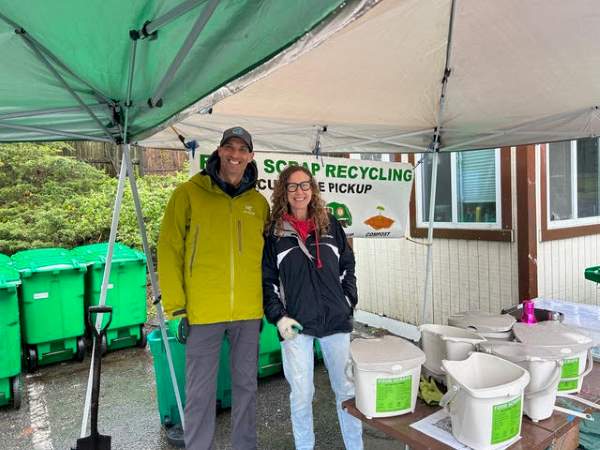 Dedicated volunteers of the CAC were key to the success of the day, and Sterling would like to extend a big thank you to the volunteers for their great help—especially in the harsh weather conditions. Sterling would also like to recognize Jeff Coleman and Tyler Seifert, the “dynamic duo” of the Scarsdale Department of Public Works (DPW), for their pivotal roles in coordinating and organizing the program and for their support of the sustainability efforts of Scarsdale.
Dedicated volunteers of the CAC were key to the success of the day, and Sterling would like to extend a big thank you to the volunteers for their great help—especially in the harsh weather conditions. Sterling would also like to recognize Jeff Coleman and Tyler Seifert, the “dynamic duo” of the Scarsdale Department of Public Works (DPW), for their pivotal roles in coordinating and organizing the program and for their support of the sustainability efforts of Scarsdale.
Compost Giveback Day is a thank you to our many residents, whose food scrap recycling each week plays a major role in protecting our environment. To sign up for the Scarsdale Scrap Recycling program, please email [email protected] to help protect our earth!
Below is a photo gallery of Scarsdale's 2023 Compost Giveback Day:
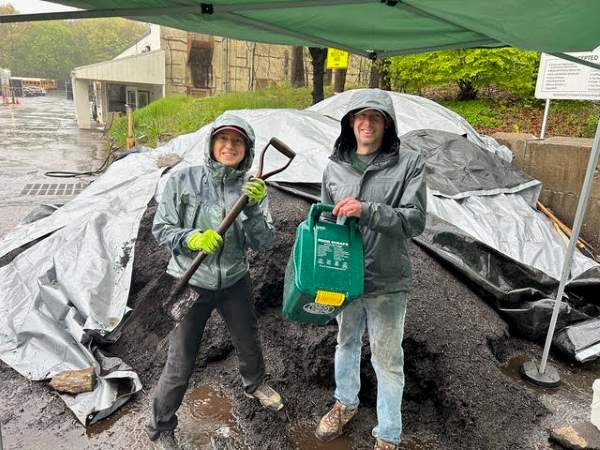
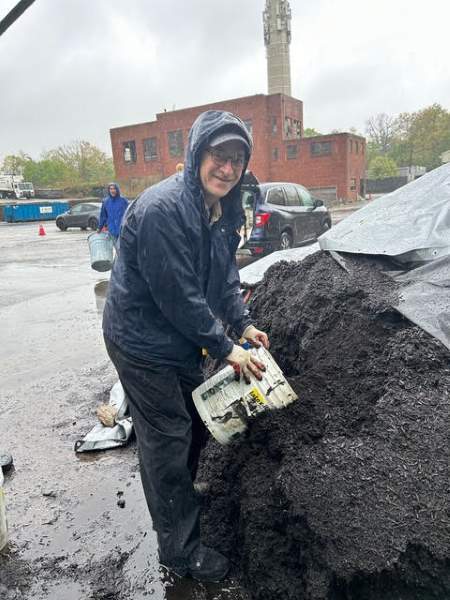
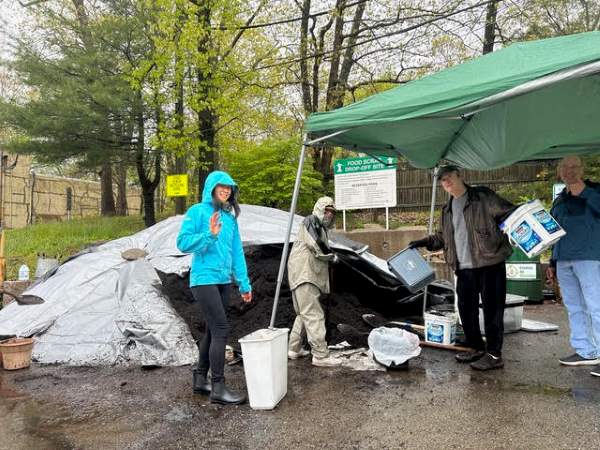
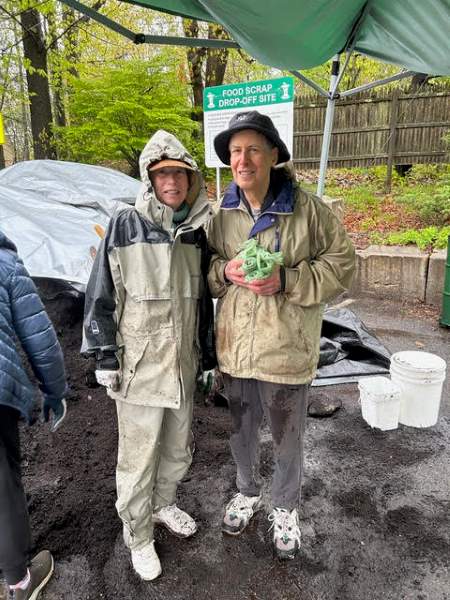
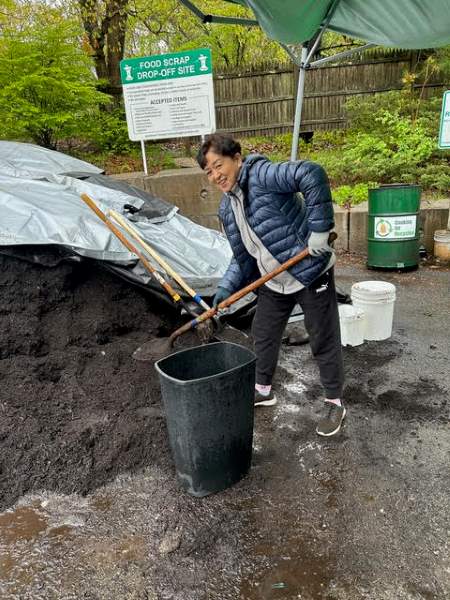
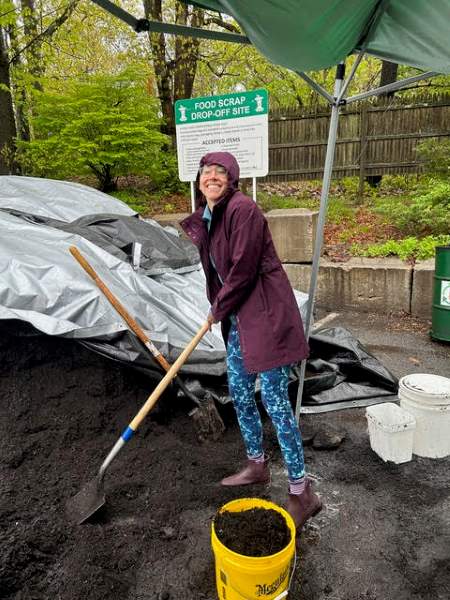
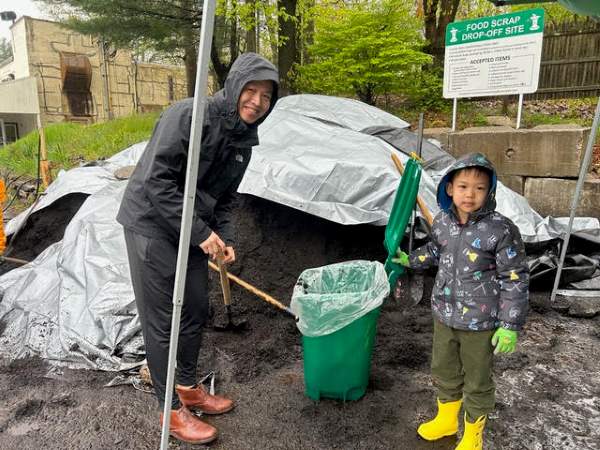
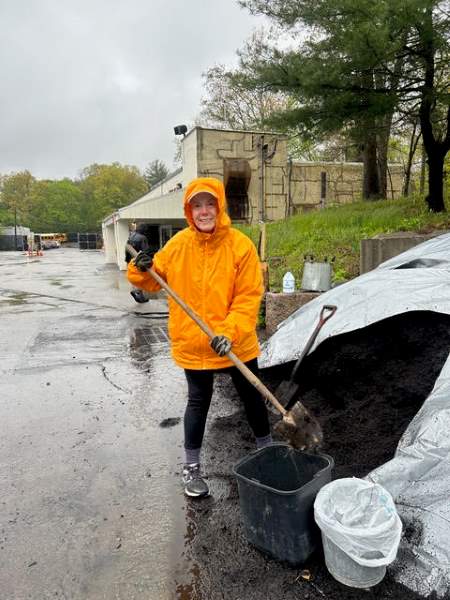
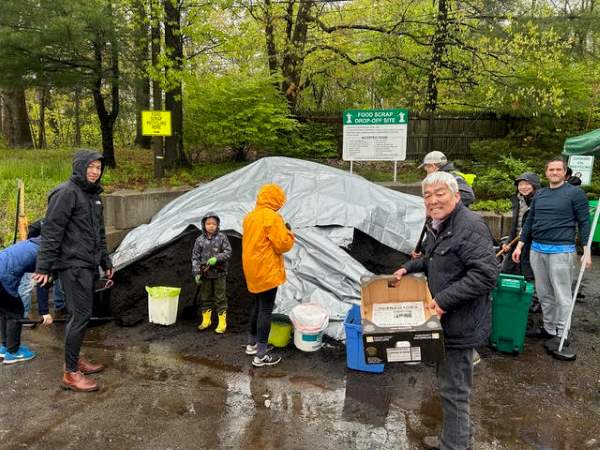
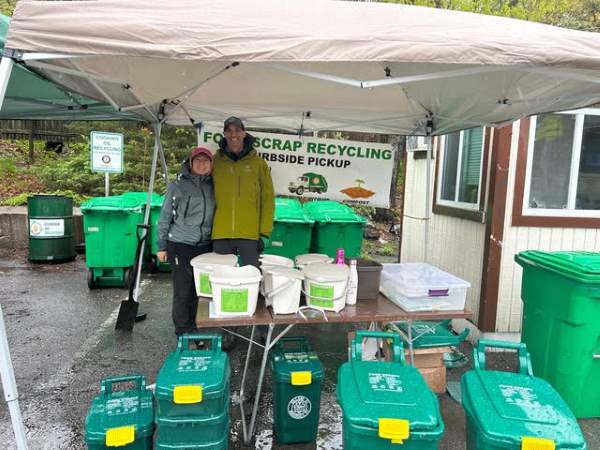
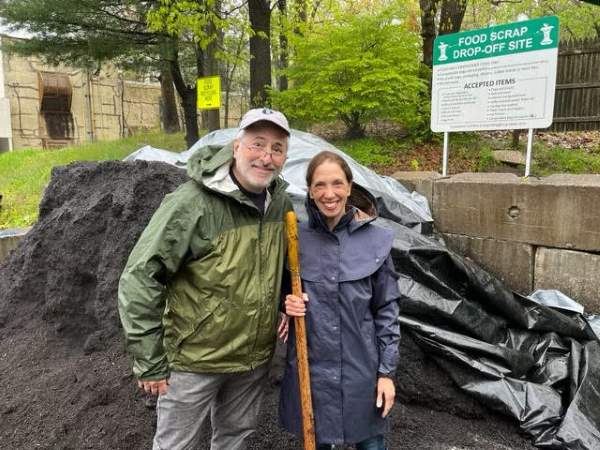
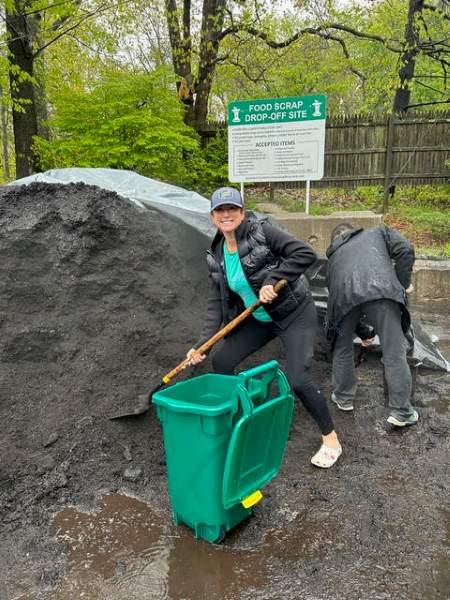
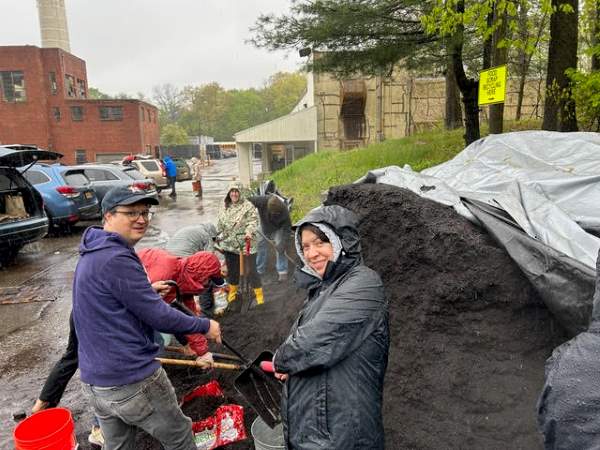
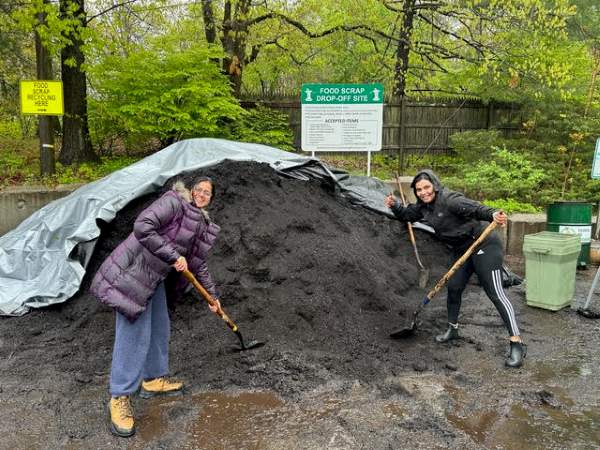
Scarsdale Boys' Golf Team: Hungry for Redemption in 2023
- Details
- Written by: Sajiv Mehta
- Hits: 2280
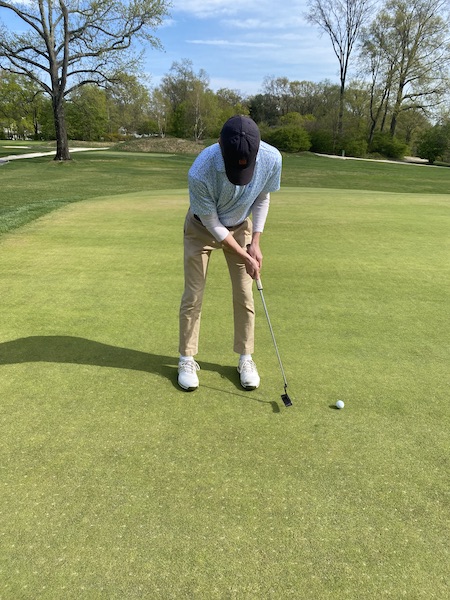 Thomas Kronenberg hits a putt in preparation for a match at Quaker Ridge Golf Club on Wednesday, 4/19The 2022 season came to a rather forgettable close for the SHS Boys’ Golf Team. After a 19-win, undefeated season in ‘21 in which the Raiders won the Section Title in dominating fashion, Scarsdale stumbled to a 3rd place finish at Fenway Golf Club, their home course, the very next year. It was a surprising end to a spring that dished out much individual success to Raiders. A record 13 boys from the team qualified for individual sectionals, 4 were all-section, and, senior captain Matthew Choe, qualified for the state tournament.
Thomas Kronenberg hits a putt in preparation for a match at Quaker Ridge Golf Club on Wednesday, 4/19The 2022 season came to a rather forgettable close for the SHS Boys’ Golf Team. After a 19-win, undefeated season in ‘21 in which the Raiders won the Section Title in dominating fashion, Scarsdale stumbled to a 3rd place finish at Fenway Golf Club, their home course, the very next year. It was a surprising end to a spring that dished out much individual success to Raiders. A record 13 boys from the team qualified for individual sectionals, 4 were all-section, and, senior captain Matthew Choe, qualified for the state tournament.
Due to this large amount of returning talent, only 4 spots were available on the varsity team this spring. After two nine-hole rounds, two players from last year’s team, Ryan Phillips and Matthew Steuerman, secured their places on the roster, and two underclassmen earned a spot as well. Leo Chu, a reclassed sophomore back from two years abroad in Taiwan, had a good showing at the tryouts, as did Reece Schneider, a freshman whose first-day score of 1-over 37 led the tryouts. With the roster set, the Raiders took full advantage of a week of Spring break to hone their games and came out firing in the first week of matches, shooting scores of 203, 201, 210, and 190. These matches all went down in the “Win column”, but they weren’t without some close calls.
On Tuesday 4/11, the Raiders were in the midst of a close match with John Jay Cross River. After the rounds were in and the scores were counted up, it seemed that the Raiders had lost – they had shot 201 to a score of 200 by John Jay. However, a few hours after the last putt was holed and the players had left, Scarsdale Coach Andy Verboys realized that a score had been miscounted – he had misheard one of the John Jay boys’ names and thus put down a 40 instead of a 43 for him. When the player’s true score had counted, the Raiders won, 201 to 203.
Despite the eventual result, a match that came down to the wire was a learning experience for the Raiders. Junior Justin Liu said, “Last year, we lost. So this year, we’re going to try to make sure that doesn’t happen, and today reminded us of that.” The motivation did its work just 2 days after the John Jay match, when the team fired a score of 190 at the back nine of Fenway Golf Club, a score that, according to Coach Verboys, is the lowest Scarsdale has ever gone on those specific nine holes. They were led by a 1-under 34 by Liu, who made an eagle on the final hole to break par for the first time in a high school match.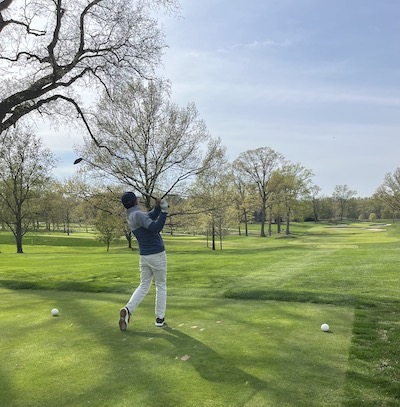 Sajiv Mehta hits a tee shot on the 15th hole at Quaker Ridge Golf Club, Wednesday, 4/19.
Sajiv Mehta hits a tee shot on the 15th hole at Quaker Ridge Golf Club, Wednesday, 4/19.
This year, Scarsdale’s lineup is especially centered around the team’s upperclassmen. Indeed, several veteran juniors are all arguably in the running for the starting lineup and looking to make a deep postseason run. Justin Liu has been on Varsity since his freshman year and has had strong finishes each year since – he would have made Section 1’s team at the New York State Tournament in 2021 if it hadn’t been canceled due to the Covid-19 Pandemic. Last spring, he qualified for the second round of the sectional tournament. Another strong junior is Cole Gerson, who is only in his second year of Varsity play but has already made a big impact. Last season, Gerson had a strong, consistent regular season, finishing the regular season with a scoring average good for tenth in the section. He, too, qualified for the second day of sectionals. Fellow junior Thomas Kronenberg is yet another regarded player, having earned all-section honors last May. Lastly, senior captain Choe is also looking to reload and repeat his success in 2022, when he won a one-hole playoff to secure the final spot on the state tournament team.
The Raiders have a record of excellence – they’ve won six section titles in the last ten years and three in the last four seasons. With a roster as remarkably deep as ever and a competitive fire that only seems to burn brighter in the face of setbacks, the Raiders likely won’t be satisfied with anything less than another title to further add to their history of prestige.
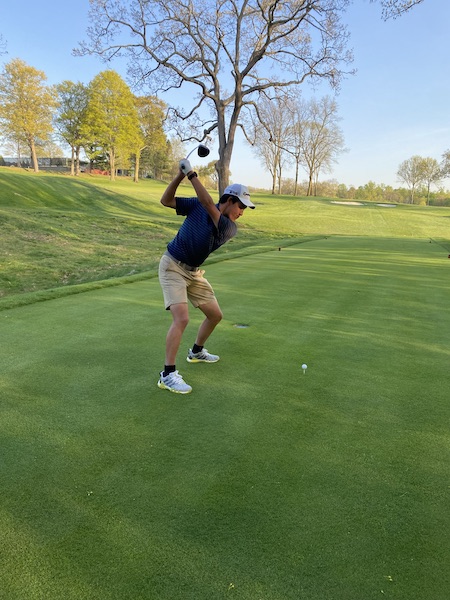 Justin Liu hits a tee shot in preparation for a match at Scarsdale Golf Club on Tuesday, 4/18And really, why should they be?
Justin Liu hits a tee shot in preparation for a match at Scarsdale Golf Club on Tuesday, 4/18And really, why should they be?
Author Sajiv Mehta is a junior at Scarsdale High School. He has been a member of the varsity boys' golf team for three years.
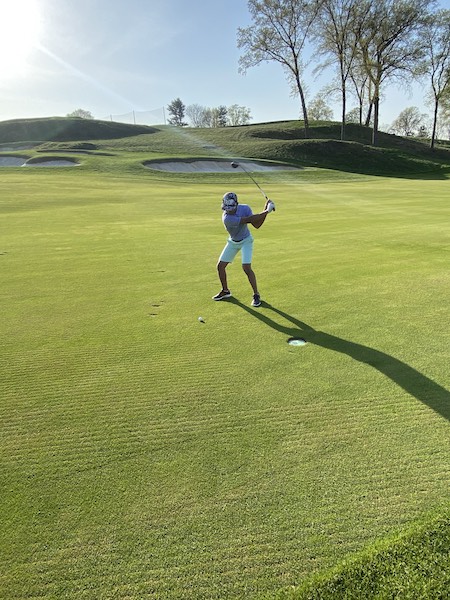 Sajiv Mehta hits a shot in preparation for a match at Scarsdale Golf Club on Tuesday, 4/18.
Sajiv Mehta hits a shot in preparation for a match at Scarsdale Golf Club on Tuesday, 4/18.
How Long Should a Demolition Take?
- Details
- Written by: Joanne Wallenstein
- Hits: 2337
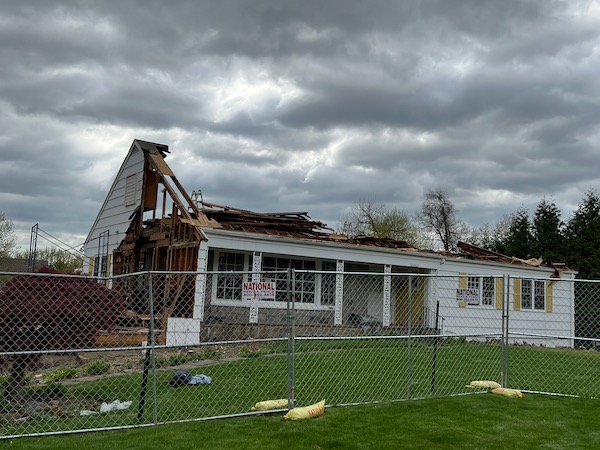 We received a copy of a letter from a disgruntled neighbor who lives on Fayette Road. He is complaining about a partially demolished home at 62 Franklin Road that he claims has been in this state for a month.
We received a copy of a letter from a disgruntled neighbor who lives on Fayette Road. He is complaining about a partially demolished home at 62 Franklin Road that he claims has been in this state for a month.
He said, “This picture is not of a damaged house from Iowa or Mississippi caused by a tornado. It is a house being demolished at the corner of Franklin Road and Crossway and has been sitting like this for a month." Either the owner of the property has abandoned the project or gone bust.”
He said he has tried to contact the Building Department and can’t get through. He suggested, “Why don’t you issue a hefty daily fine ($10,000 a day) and force the owner to act.”
We made some inquiries and were told that plans for a new house on the property had been approved and the builder would move forward shortly.
A 6,740 square foot new house on the property is currently listed for $3,995,000. You can see it here.







